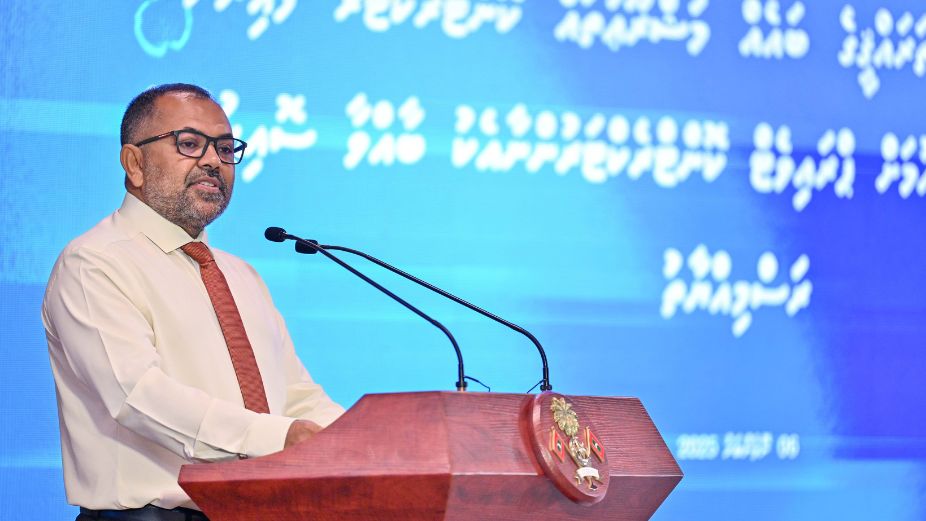
The Government of Maldives has introduced a series of reforms to foreign investment regulations, with a particular focus on the real estate sector, in an effort to curb capital flight and strengthen the position of domestic businesses in the national economy, Minister of Finance and Planning Moosa Zameer announced.
Speaking at a ceremony held on Thursday to formalise over 200 development contracts with private Maldivian firms, Minister Zameer noted that a significant portion of real estate companies operating in the Maldives are foreign-owned. These firms, he explained, often manage major developments without generating proportionate benefits for the local economy.
“These companies sell real estate assets to Maldivians using financing from the Maldivian banking system, convert the proceeds from MVR to USD, and increasingly remit the funds abroad through local intermediaries,” said the minister.
The new measures, led by the Ministry of Finance, mark a strategic policy shift towards economic self-reliance and sustainable local enterprise. Minister Zameer said the government is committed to reducing the outflow of capital from the country and ensuring that local financial systems better serve national interests.
Minister Zameer said these policy adjustments are designed to ensure that more revenue circulates within the domestic economy while enhancing the long-term growth of local, tax-paying enterprises. He added that the reforms reflect the government’s commitment to fostering the development of Maldivian businesses and reinforcing their contribution to national progress.
Additionally, the Finance Ministry has directed state-owned enterprises to prioritise local contractors, suppliers, and real estate-linked businesses in their procurement processes. The National Tender Board and other relevant authorities have already awarded hundreds of contracts to Maldivian private companies in line with this directive.
Recently, the ministry revised the Foreign Investment Requirements, which now state that real estate projects valued below USD 100 million are now reserved exclusively for local entities. This is the first time such a threshold has been introduced, aiming to protect sectors with strong domestic potential while promoting foreign participation in areas requiring external expertise or capital.











